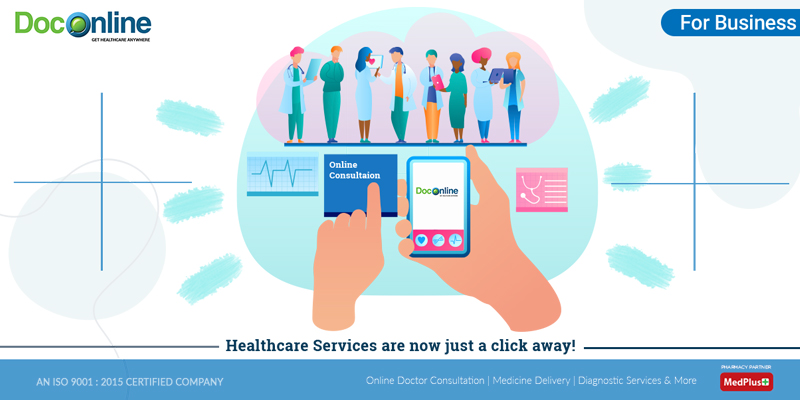The Future of Medication: Discovering Subscription Based Healthcare Versions
The Future of Medication: Discovering Subscription Based Healthcare Versions
Blog Article
How Subscription-Based Medical Care Is Changing the Clinical Market

The Increase of Membership Healthcare
In current years, the healthcare sector has actually seen a substantial change in the direction of subscription-based designs, reflecting wider customer patterns favoring comfort and predictability. This improvement is driven by the increasing demand for more personalized and easily accessible care options. Registration healthcare, often referred to as concierge medication or direct medical care, uses patients a set month-to-month charge for a variety of medical solutions, dramatically modifying typical fee-for-service designs.
The increase of membership healthcare is assisted in by developments in innovation, which enable streamlined interaction in between clients and service providers - subscription based healthcare. Digital platforms and telehealth services have actually come to be essential, supplying people the capability to arrange visits, gain access to medical records, and receive consultations online. This technological combination not only improves patient interaction but also permits suppliers to deliver much more reliable care
Furthermore, the membership design lines up with the advancing assumptions of people that look for even more control over their medical care expenditures and experiences. While this version is obtaining grip, its proliferation faces challenges such as regulatory hurdles and the necessity for more comprehensive acceptance within the typical medical care ecosystem.
Benefits for Suppliers and individuals
Subscription-based healthcare supplies a wide range of advantages for both people and carriers, reshaping the dynamics of clinical care. For clients, this version provides boosted access to medical care solutions.
For doctor, subscription-based models promote an even more lasting and satisfying technique. By securing a consistent revenue stream, companies can concentrate on providing high-grade treatment without the stress of volume-based solution. This version urges longer client appointments, cultivating stronger patient-provider relationships and enhancing health and wellness results. Furthermore, it uses companies the versatility to innovate and incorporate precautionary and alternative care methods. Administrative tasks are frequently streamlined, minimizing above expenses and allowing service providers to devote more time to patient communication. On the whole, subscription-based medical care straightens the motivations of providers and individuals, promoting a more reliable and patient-centered health care shipment system.
Trick Functions of the Model
Regularly, the essential attributes of the subscription-based healthcare model highlight its distinctive technique to supplying medical services. Central to this model is the principle of predictable, regular monthly settlements, offering people an extensive array of services without the unpredictability of standard fee-for-service frameworks. This version typically consists of limitless accessibility to medical care services, preventive treatment, and regular exams, guaranteeing that individuals can involve with their healthcare service providers proactively instead of reactively.
Furthermore, direct communication channels, such as telemedicine and messaging platforms, are highlighted, enabling patients to get timely advice and consultations without requiring in-person consultations. This boosts availability and comfort, especially for individuals with movement constraints or those staying in remote locations. The design also fosters more powerful doctor-patient connections, as health care service providers are incentivized to concentrate on long-term wellness results instead of temporary brows through.
Additionally, subscription-based health care frequently incorporates technical innovations, such as digital health and wellness records and wellness tracking applications, to give efficient and tailored care. Patients gain from coordinated and continual care monitoring, which is tailored to their specific health and wellness needs. Eventually, these features jointly find out this here create a patient-centered health care experience, prioritizing access, expense transparency, and precautionary treatment.

Difficulties and Considerations
While the subscription-based health care model uses various benefits, it is not without its factors to consider and challenges. One substantial challenge is making certain fair access. Subscription versions may accidentally favor those with greater socioeconomic status, possibly widening variations in healthcare gain access to for lower-income people who might deal with regular monthly costs. This increases honest issues concerning inclusivity and equity in healthcare distribution.
One more difficulty exists in governing conformity. Subscription-based healthcare should navigate a complicated internet of laws that differ by area, consisting of issues around individual discretion, information defense, and state licensing needs. Ensuring compliance without hindering the design's versatility and advancement can be intimidating for providers.
Additionally, there is the risk of overutilization or underutilization of services. Patients paying a fixed fee might overuse solutions, bring about increased operational expenses, while others could underutilize due to fear of straining the system, possibly disregarding essential treatment.
Future Potential Customers and Innovations
The landscape of subscription-based health care is poised for transformation through arising advancements and progressing potential customers. As innovation remains to advancement, the integration of fabricated knowledge and maker knowing presents substantial chances to enhance analysis precision and improve patient monitoring. Anticipating analytics can transform preventive treatment by identifying possible health and wellness risks prior to they materialize, thereby minimizing both costs and the burden on health care systems.
Furthermore, telemedicine is established to broaden within subscription designs, offering patients boosted access to medical care experts no matter of geographical constraints. This not just helps with connection of care however also equips patients to involve even more actively in their wellness administration. In addition, blockchain innovation supplies prospective in safeguarding client information and ensuring interoperability across systems, fostering depend on and openness.
The development of individualized medicine is one more frontier, with registration models giving an one-of-a-kind structure for supplying customized health and wellness remedies. Genetic testing and tailored therapy plans can be perfectly look at here incorporated, straightening client needs with particular medical treatments. Partnerships between tech companies and healthcare companies are most likely to produce ingenious options, boosting person experiences and end results. As these leads appear, subscription-based medical care has the possible to redefine just how treatment is provided and accessed.
Conclusion
Subscription-based medical care is transforming the clinical industry by using an extra available, foreseeable, and patient-centered method to clinical solutions. Despite difficulties such as regulatory obstacles and possible disparities in access, the registration version holds guarantee for a much more personalized and effective healthcare experience.
Membership medical care, sometimes referred to as concierge medication or straight key treatment, offers clients a set month-to-month cost for a range of medical services, substantially modifying traditional fee-for-service models.
Furthermore, the membership design straightens with the progressing assumptions of people that look for even more control over their medical care costs and experiences. For individuals, this model offers enhanced access to healthcare services. In general, subscription-based health care lines up the incentives of clients and suppliers, advertising an extra patient-centered and effective health care shipment system.
Furthermore, telemedicine is set to increase within registration versions, offering individuals enhanced access to healthcare specialists no matter of geographical restrictions. - anchor subscription based healthcare
Report this page